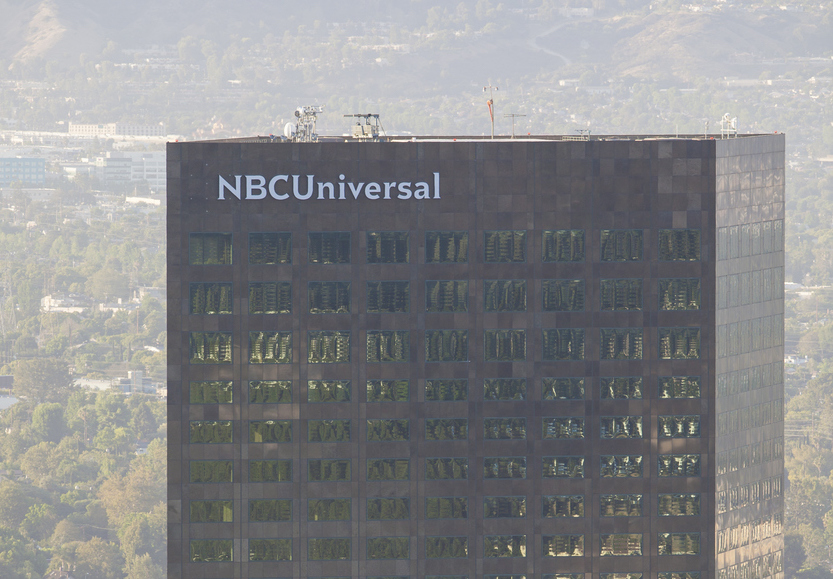Temporary Worker News
As More Icons Fall, #metoo Continues to Fuel Movement Against Sexual Harassment
Los Angeles, CA: Allegations of sexual harassment that is consuming the entertainment, media and government industries and given birth to the #metoo movement, has at its root the various allegations against former media mogul Harvey Weinstein. While none of the allegations against Weinstein and others have yet to be proven in court, the mere allegation of wrongdoing is enough to disintegrate a career overnight, and bring once-mighty dynasties to their knees.
Meanwhile allegations against Weinstein continue with the announcement of a sexual harassment lawsuit against Weinstein and the company that bears his name brought by an unnamed actress alleging rape.
The lawsuit was filed through the plaintiff’s harassment lawyer November 14 in Los Angeles Superior Court. The plaintiff, identified for purposes of the lawsuit as Jane Doe, accuses Weinstein of rape. The plaintiff also makes allegations against the various entities that make up The Weinstein Company, claiming the co-defendants were party to the crime by not doing enough to prevent Weinstein from engaging in his unsavory behavior.
The alleged activity of Weinstein and others speaks to a culture that is feared to still exist in the workplace, where individuals of power are alleged to foist themselves on underlings with the worst possible intentions, leaving in their wake shame and emotional distraught. And harassment doesn’t have to extend to the criminal act of rape to be considered sexual. Harassment lawsuits have since been filed against various perpetrators due to unwanted touching, suggestive comments and verbal abuse, both in the workplace and beyond.
Weinstein’s exposure was amplified through the publication of an explosive investigation by The New York Times (10/05/17) in October, which reveals some 70 actresses and other industry professionals claim to have fallen victim to Weinstein’s behavior, which has been characterized as predatory. Other entertainment icons – household names with heretofore trusted reputations – have fallen like so many dominoes following allegations of harassment.
According to Law360 (11/14/17), Weinstein’s most recent accuser alleges she was lured to a hotel room under the pretense of a business meeting, only to be assaulted by the powerful movie mogul, or so it has been alleged.
“Plaintiff has suffered physical injury, severe emotional distress, humiliation, embarrassment, mental and emotional distress and anxiety, and economic harm,” the complaint said. “At all relevant times, defendants acted with conscious disregard for plaintiff’s rights and feelings.”
There were two allegations of harassment detailed in the harassment lawsuit. The first is alleged to have occurred in 2015 in Weinstein’s hotel room, where the accused is alleged to have asked permission to self-gratify himself in front of the plaintiff. The plaintiff refused permission and attempted to leave, but Weinstein is alleged to have grabbed her by the wrist and forced her to stay while he carried out the act in front of her.
The following spring, in 2016, the plaintiff was again summoned to the accused’s hotel room for a business meeting. This time, Weinstein is said to have forced himself upon the plaintiff against her wishes.
The suit includes claims of sexual battery, gender violence and negligence.
The takeaway message here, considering the downfalls of powerful players in entertainment, media and government falling amidst mushrooming allegations of inappropriate behavior, is that harassment in any form is never okay.
The courts remain a viable option to not only seek justice and recompense from a perpetrator, but to continue sending the message to others that sexual harassment, or harassment in any form is not to be tolerated. Perpetrators should be brought to justice, and victims should be duly compensated.
A harassment lawsuit is an appropriate pathway to do that.
The case against Weinstein is Jane Doe v. The Weinstein Co. et al., Case No. BC683411, in the Superior Court for the State of California, County of Los Angeles.
Ninth Circuit Revives California Lawsuit Over Unwanted Hugs
County of Yolo, CA: The recent rash of assault allegations and actual charges against the Hollywood elite, actors, media personalities and even members of US Congress have succeeded in raising the bar when it comes to proper office and workplace decorum and behavior. The issue has become so sensitive and emotionally-charged that an unwanted hug can be interpreted – many say, correctly – as a form of sexual assault. One well-known Hollywood studio head has recently taken a leave of absence voluntarily in order to reflect on his habit of providing warm hugs at the office. For the employer in California, employees rights and compliance to labor laws speaking to sexual and physical harassment are of paramount importance.
Back in February Reuters reported on the revival of a 2012 lawsuit over unwanted hugs in the workplace. The lawsuit, revived by the US Ninth Circuit Court of Appeals, was resurrected long before the current spate of assault allegations aimed at the entertainment industry and the halls of government, was nonetheless prophetic of what is now an almost daily revelation in the headlines. The issue behooves the employer in California to not only be fully conversant with laws governing workplace conduct on a physical level, but to also ensure their employees are too. Further, any allegation of unwanted touching or physical interference regardless of how seemingly innocent – such as a hug – must be treated with the utmost seriousness and respect.
It was on February 23 of this year that a three-judge panel of the Ninth Circuit revived a sexual harassment case against Yolo County in California and county Sheriff Edward Prieto. The suit claims that Prieto created a sexually hostile work environment by greeting claimant Victoria Zetwick, a correctional officer, with “unwelcome hugs” over 100 times during the 12-year period she worked in the Sheriff’s Office.
Zetwick also asserted in her employees’ rights and compliance lawsuit that she witnessed the accused hugging, and planting kisses on numerous other female employees, but never once witnessed similar behavior towards a male employee in the office.
The accused responded by saying he did, indeed also show affection to male employees at the office; however the plaintiff was never around to witness that. The co-accused’s legal team also defended their client’s behavior by observing that provided Prieto did, indeed hug women more than men; it was due to “genuine but innocuous differences in the ways men and women routinely interact with members of the same sex and the opposite sex.”
The accused claims that his various hugs to the plaintiff lasted only for a few seconds at a time, was always conducted in front of other people and did not involve comments of a sexual nature or other unwanted touching.
The plaintiff countered that “chest to breast” hugs had “sexual overtones.”
Co-defendant Yolo County moved to have the lawsuit dismissed based on the County’s assertion that the conduct of its Sheriff was within the scope of “ordinary workplace socializing.” The District Court agreed and granted the defendant’s petition for summary judgement in 2014.
Zetwick however, who was so stressed over the workplace conduct of her supervisor that she was reduced to taking medication in order to get to sleep at night, appealed the ruling to The Ninth Circuit. This past February, the appellate court agreed to hear the case and revived the lawsuit.
“We reverse the grant of summary judgment in favor of the defendants and remand for a trial on the merits of Zetwick’s federal and state sexual harassment claims and her state claim of failing to prevent sexual harassment,” the decision said.
In sum, the recent revelations involving alleged assaults and unwanted touching have created an environment where the lines have been blurred between heinous and serious assaults and unwanted touching through abuses of influence and power, and seemingly innocent demonstrations of warmth in the workplace.
Beyond brushing up on what state laws have to say about sexual harassment and unwanted physical interference in the workplace, employers would be wise to consult with legal counsel for guidance and advice with regard to rapidly shifting parameters of what is acceptable, and what is not…
The lawsuit is Victoria Zetwick v. County of Yolo; Edward G. Prieto, Sheriff of Yolo County, Case No. 14-17341 DC No. 2:12-cv-02486-TLN-AC, in the US Court of Appeals for the Ninth Circuit.
California is now a ‘Sanctuary State’ for the Undocumented Worker
Sacramento, CA: Last month the undocumented worker in the State of California won yet another series of protections from those seeking to send them packing for their place of origin, with the signing of Bill SB54 by Governor Jerry Brown October 5. While other states have passed laws in an attempt to better protect their immigrants and undocumented workers, TIME / AP (10/05/17) reports that SB54 is the most comprehensive basket of protections in the country, making California a so-called ‘sanctuary state.’
“These are uncertain times for undocumented Californians and their families, and this bill strikes a balance that will protect public safety, while bringing a measure of comfort to those families who are now living in fear every day,” Brown said in statement, according to the Associated Press / AP.
The reference to ‘uncertain times’ is a nod to the policy of the Trump Administration in taking a hard line on immigrants. However, according to TIME, the issue is of particular interest and importance to the Golden State in terms of the sheer magnitude of the immigration numbers, and the value undocumented workers provide to the State economy.
According to TIME, an estimated 10 million immigrants are residents of California – that’s more than the entire state of Michigan. Some 25 percent of those immigrants are thought to be undocumented.
The value and impact immigrants – including those who are undocumented – have on the state economy is significant. Thus, the designation of California as a so-called sanctuary State is not confined to concerns over decency and human rights. Were those immigrants to be deported tomorrow, the State economy would grind to a halt. Immigrants and undocumented workers are valued as agricultural workers, cleaners and custodians, nannies and other support staff for jobs that would be hard to fill without the availability and enthusiasm of immigrants.
TIME reports that SB54 went through a series of updates before it was signed into law, at the behest of organizations such as the California State Sheriff’s Association, which expressed concern about the potential for dangerous offenders to slip through the cracks.
Response to such concerns has taken the form of an allowance for cooperation between state and federal officials with regard to cases that involve particular crimes.
However, the overriding thrust of SB54 is to limit access to federal immigration enforcement through the establishment of so-called ‘safe zones’ in schools, courthouses and hospitals. TIME reports that federal agents retain the authority to enter the State of California for deportation duties or to facilitate raids. That doesn’t change. However, SB54 makes it more difficult to do so.
California Senate Leader Kevin de Leon, the sponsor of SB54, noted that it’s important for immigrants – undocumented or otherwise – to feel free to report abuses of the laws to police, or other authorities. The legislation is also aimed at providing the confidence for immigrant parents to send their children to school for an education, without reprisals.
Of course, any strengthening of supports at the State level will be helpful with regard to the pursuit of an undocumented worker lawsuit: to that end, the undocumented worker lawyer now has more to work with.
TIME also notes that California is also looking to the future, in the event the Trump Administration attempts to deny federal funding to the State as a reprisal for bringing in SB54 and other measures the State has adopted to protect immigrants and undocumented workers. To that end, California began discussions with a noted law firm soon after Trump came into office, in an effort to gain advice and insight as to the legal limitations of resistance.
While the situation remains tenuous, at the end of the day the undocumented worker can take solace in the friends they have in the State legislature. Those lawmakers who sponsor such pieces of legislation as SB54 are motivated in more ways than simply being nice…
They also recognize the value of the undocumented worker to the State economy, and are trying to protect and preserve that value.
In other words, the State needs the undocumented worker, as much as the undocumented worker needs the State…
Health Care Provider Faces ERISA Lawsuit, Plaintiffs Allege Standard of Care Not Met
San Francisco, CA: A class action ERISA lawsuit that combines two separate cases is claiming that a provider of group health insurance is in violation of the Employee Retirement Income Security Act (ERISA, as amended 1974) as well as California state laws in denying coverage for mental health and substance abuse treatments.
The assertion is that a subsidiary of UnitedHealth Group is in breach of its fiduciary duties under ERISA by denying coverage according to hundreds of internal guidelines that are alleged to be in violation of ERISA and state laws.
According to Law360 (10/16/17), the ERISA lawsuits are two consolidated class actions that were filed in 2014 and are focused upon a subsidiary of UnitedHealth Group, United Behavioral Health (UBH). Named plaintiff Gary Alexander asserts claims in one of the ERISA lawsuits that pertain to outpatient treatment. In the other class action, named plaintiffs David and Natasha Wit have put forward claims related to residential treatment and stays in hospital.
In both cases, plaintiffs assert that UBH guidelines do not meet generally accepted levels of care and don’t measure up to industry standards. The defendants were denied in their motions to have the two cases dismissed outright, with US Magistrate Judge Joseph C. Spero later certifying the ERISA lawsuits for class action status. Certification was granted in September of last year.
Plaintiffs assert that UBH was motivated primarily by economics, rather than its fiduciary duties under the Employment Retirement Income Security Act when it crafted a series of internal guidelines – described as no fewer than 222 in number – for granting, and denying coverage.
UBH countered in opening arguments that guidelines were crafted with the help of comments from physicians, and that guidelines were revisited on a regular basis. UBH also asserted that the guidelines under dispute duly met the terms of all the health plans, and thus there could be no finding of an ERISA violation, according to defendant counsel.
An expert testifying for the plaintiffs noted that UBH guidelines did not reflect guidance and criteria observed by the American Society of Addiction Medicine, which psychiatrist Marc Fishman helped to craft. Those guidelines are considered the industry standard, the witness said. Fishman went on to say that UBH tended to “undermatch” patients with facilities or treatment that afforded less benefit than that required by the patient. A live-in rehabilitation facility, which is more costly, was only recommended when safety was deemed a factor, as opposed to the efficacy of treatment.
“Perhaps the best analogy is for a chronic medical condition,” Fishman said. “You still need to get treatment for chronic diabetes even if it’s under control right now, precisely because it is that treatment that’s keeping it in control.”
Upon cross examination, counsel for UBH noted that the Plan’s regulations specifically spelled out that “enrollees’ specific benefit documents supersede these guidelines.”
In a statement to Law360, UBH said the company tailored its coverage to individual needs. “Each person seeking treatment for mental health or substance use is unique,” said spokeswoman Tracey Lempner, in the statement. “We provide access to evidence-based care in the appropriate setting, based on the patient’s specific needs and health benefits plan.”
Judge Spero, in a moment of levity, noted that he was putting a great deal of value on expert testimony as he was not prepared to go through the 222 internal guidelines line by line, looking for violations to ERISA throughout thousands of pages worth of documentation.
“I certainly have my opinions, but I’m just some dumb judge. I’m going to rely on the expert. I’m not going to try to figure it out on my own,” Judge Spero said.
The cases are David Wit et al. v. United Behavioral Health, Case No. 3:14-cv-02346, and Gary Alexander et al. v. United Behavioral Health, Case No. 3:14-cv-05337, in the US District Court for the Northern District of California.
Former Employee of NBCUniversal Media Alleges Wrongful Termination
Los Angeles, CA: A California wrongful termination lawsuit that also has overtones of sexual harassment and an inappropriate workplace environment was launched in September against NBCUniversal by a former employee of the media company.
Law360 has the lawsuit as De Marco v. NBCUniversal Media LLC, Case No. 2:17-cv-07692. The plaintiff originally filed her lawsuit in California State Court, however last month the defendant had the case removed to US District Court for the Central District of California.
The plaintiff in the wrongful termination lawsuit is Gina De Marco. According to the Hollywood Reporter (11/02/17), De Marco was employed as a senior digital fulfillment specialist with a subsidiary of NBCUniversal, identified as NBCUniversal Media. She was employed by the firm, according to the lawsuit, between 2016 and August of 2017 until she was terminated from her position without just cause, or so the plaintiff asserts.
It is also suggested that the plaintiff worked from home due to what was referenced as “work restrictions,” although the particular restrictions were not specified.
De Marco’s wrongful termination lawsuit is rooted in alleged unprofessional conduct on the part of De Marco’s direct supervisor, who is alleged to have created a hostile work environment for De Marco. Various statements are attributed to the supervisor; statements and comments which De Marco asserts were inappropriate and lent themselves to a hostile work environment.
It is unclear if such comments were made on NBCUniversal premises, or directed to De Marco at her home workspace via email or other electronic means. The Hollywood Reporter noted that De Marco raised her concerns with the human resources department of NBCUniversal, but asserts there was no adequate investigation undertaken, nor was De Marco assigned a different direct supervisor.
Her lawsuit asserts De Marco, in June of this year, suffered “mental and/or physical disabilities” resulting from alleged harassment that proved to limit her personal and professional activities.
In her wrongful termination lawsuit, De Marco notes that she was briefly placed on paid sick leave before she was terminated from her position.
“On or about August 9, 2017, defendant NBCUniversal…wrongfully terminated plaintiff De Marco’s employment as a result of: her complaints about [her direct supervisor]; her complaints about the post-complaint harassment and retaliation that she was subjected; and due to her disabilities and need for accommodation including, but not limited to, leave,” De Marco claims in her lawsuit.
De Marco also asserted that her termination resulted from De Marco having her employment moved from her home to a “non-remote” position, although the plaintiff argues that she had no opportunity to accept the office-based position offered to her.
The defendant released the following statement: “NBCUniversal has a longstanding commitment to safeguard equal employment opportunities and to providing a safe working environment in which everyone is treated with respect and dignity.”
From the Ashes of a California Wage and Hour Class Action, Another Appears
San Diego, CA: A California wage and hour lawsuit that was originally put forward as a class action has been amended to allow class participants the opportunity to pursue their wage and hour claims individually. To that end, all class claims associated with the plaintiffs’ fourth amended complaint have been stricken, following approval by US Magistrate Judge Elizabeth D. Laporte earlier this month.
The original wage and hour complaint against defendant CSX Intermodal Terminals Inc. (CSX) accused the company of incorrectly classifying drivers as independent contractors when they were rightly employees of the firm, or so the plaintiffs alleged. As a result, plaintiffs allege they were denied meal and rest breaks, denied pay that reflected proper minimum wage levels, denied reimbursement for work-related expenses including insurance costs, fuel and maintenance, and together with other rights guaranteed to employees under California employment law.
CSX, according to Court documents, is a provider of freight transport via trucks as well as rail. Drivers were hired to operate trucks that pulled CSX trailers laden with freight between rail yards and clients of CSX.
The wage and hour lawsuit is Valadez, et al. v. CSX Intermodal Terminals Inc., Case No. 3:15-cv-05433. As suggested above the lawsuit was originally proposed as a class action until plaintiffs decided to amend their suit, with the support of the Court.
At the same time, an additional wage and hour lawsuit has been filed (Goyal, et al., v. CSX Intermodal Terminals Inc., Case No. 4:17-cv-06081), alleging similar claims to that of Valadez, et al v. CSX. According to Law360 (10/27/17), the Goyal complaint has been filed on behalf of some 30 drivers with another 25 expected to be added in the coming weeks. It was reported that Goyal et al drivers were originally members of the Valadez class, although none participated as named plaintiffs.
Goyal et al has been put forward itself as a proposed class action with about 90 class participants expected.
The six named drivers in Valadez v. CSX abandoned all of their original class claims against the defendant, with one exception: claim for penalties under the California Private Attorneys General Act, which seeks relief on behalf of employees who were allegedly harmed by CSX.
Amongst claims made against CSX by Goyal et al is an assertion of a pre-existing agreement between CSX and drivers stipulating that drivers had the right to refuse assignments.
The Goyal et al lawsuit, however, claims that drivers who attempted to refuse assignments did not receive alternate assignments. Some drivers, the lawsuit asserts, were not offered replacement assignments for two, or more working days.
On occasion, a driver who rejected a CSX assignment would be fired by the company, or so it is alleged.
According to the wage and hour lawyer for the plaintiffs, the defendant moved to terminate the contracts of all affected drivers in September of last year, and now reportedly uses a third-party for driving services originally undertaken by both the Valadez and Goyal drivers.
Both cases were filed in US District Court for the Northern District of California.
Operator of Ski Resort Cited by Cal/OSHA over Death of Employee
Squaw Valley, CA: The ski resort where a ski patroller died this past January has been cited by the California Division of Occupational Safety and Health for safety code violations. Fines totaling $20,250 have been levied against the operators of Squaw Valley Ski Resort. The operator, Squaw Valley Ski Holdings, is not commenting on the citations beyond sharing its intention to appeal the rulings.
“We are respectful of the guidelines put forth by the Occupational Safety and Health Administration, and have immediately appealed this citation,” Squaw Valley said in a statement issued to NBC News 4 & Fox 11 (08/09/17).“Because of that, we have no comment due to the ongoing nature of the legal process.”
According to NBC News 4 & Fox 11, Joe Zuiches – the victim in the accident – was participating in avalanche control activities at the summit of Gold Coast Ridge at the ski resort. Documents associated with the investigation reveals that two teams of patrollers were assigned to the Gold Coast Ridge for avalanche control. The patrollers were blasting by hand and hang cord deployment with “Dyno AP Plus 1.8-pound explosives with cap and fuse with a 90-second burn rate,” the investigators said.
On the morning of the accident, at 8:30am on January 24 of this year, investigators say Zuiches instructed his partner at the particular work area to join other team members, and that Zuiches would catch up with them once he had performed a hanging cord blast at the site.
The worker noted that at some point after he joined up with the other team members, he heard explosive detonations in the area from whence he had come. When the worker radioed Zuiches about thirty seconds following the blast and received no response, the team returned to the last known location of Zuiches, only to find him deceased.
There had been no witnesses.
Following an investigation, Cal/OSHA cited Squaw Valley for “failing to correct an identified unsafe working condition by implementing a procedure for protection against the workplace hazards associated with hang cord entanglement during hang cord blasting operations” for a fine of $11,250.
Squaw Valley was also cited by Cal/OSHA for “failing to ensure that all crewmembers maintained visual contact or awareness of physical location of crewmembers at all times during avalanche control activities” for a fine of $9,000.
Total fines of $20,250 were associated with alleged violations of two workplace safety codes.
It is not known if the family of the deceased patroller has, or intends to file an OSHA lawsuit.
Co-defendant’s Former Marriage a Part of Harassment and Discrimination Lawsuit
Los Angeles, CA: A somewhat complex harassment and discrimination lawsuit underway in California pits a gifted academic from Taiwan against the University of California, Los Angeles (UCLA) and a trainer at the university who is alleged to have contributed to the plaintiff’s early exit from the school.
The harassment lawsuit was brought, in part under the California Fair Employment Housing Act. The allegation of harassment, focused upon the plaintiff’s Taiwanese heritage, has been a part of the lawsuit from the beginning. However, percolating throughout is the co-defendant’s previous marriage, and the potential continued hard feelings against her former husband – born in Singapore – that may have contributed to the harassment and discrimination allegedly suffered by the plaintiff.
To that end a judge in the California Superior Court ruled, on October 10, that the former UCLA cytogenetics research fellow can introduce evidence of the trainer’s divorce towards a potential racial animus claim in an upcoming trial.
According to Law360 (10/10/17), Dr. Daniel Chen is the plaintiff in the lawsuit. Having already earned degrees from Stanford University, UCLA and the UC Irvine School of Medicine, Chen was accepted into a UCLA post-doctoral fellowship in 2014 that provides two years of training in order to become board certified in cytogenetics by the American Board of Medical Genetics and Genomics.
Court records show that Chen’s first principle trainer in the fellowship was Jennifer Pelkey, the co-defendant in the discrimination and harassment lawsuit. Chen claims that almost from the start, Pelkey began harassing him and referenced Chen in evaluations as incapable. She is also alleged to have called him out in front of colleagues.
According to Law360, Chen shared the treatment he was receiving from Pelkey with UCLA and was assigned to a different trainer. However, it is alleged that Pelkey continued her criticism of Chen after the fact, questioning Chen’s capacity to do his job and complained about Chen engaging in conversations with other doctors and staff of Chinese decent, in Mandarin.
According to Court documents Chen was ousted from the program halfway through his training. His demise, Court documents hold, was based upon the pretext surrounding allegations of inadequate performance.
Co-defendant Pelkey’s relationship history with her former husband, identified as Richard Ho was the subject of two of 10 motions in limine that UCLA filed in the run-up to a trial expected to begin soon.
Pelkey’s marriage to Ho ended in the mid-1990s. Defense attorneys noted Pelkey’s marriage and subsequent divorce were not relevant to the case and put forward a motion aimed at denying the opportunity for Chen to introduce evidence of Pelkey’s marital history.
Law360 reports that Los Angeles Superior Court Judge Terry Green denied the motion, noting that he couldn’t say as a matter of law that co-defendant Pelkey didn’t harbor lasting ill feelings stemming from her marriage, and divorce.
“I think human nature tells us the emotional scars and the ill will, live with us in part,” Judge Green said. “Whether or not the facts show to a jury’s satisfaction that ill will translates into racial animus is something you folks can argue.”
Chen sued UCLA and Pelkey in 2015 (Daniel Chen M.D. PhD. v. Regents of the University of California et al., Case No. BC598154, in the Superior Court of the State of California for the County of Los Angeles), bringing claims of discrimination based on national origin and ancestry, retaliation and harassment under California’s Fair Employment and Housing Act.
Four out of a possible ten motions in limine were granted in their entirety, with the partial granting of three and an outright denial of the remainder, which spanned issues over discriminatory comments made to other employees and Chen’s own marriage.
Jury selection in the harassment lawsuit is to commence October 16.
FMLA Lawsuits Can be Prevented
Sacramento, CA: It’s a sad commentary on the preparedness of employers that there are so many instances of litigation surrounding the federal Family and Medical Leave Act (FMLA), and the state-centric California Family Rights Act (CFRA) given the wealth and breadth of knowledge available. An employer well-versed and conversant on the Acts, and the respective relationships between the two, can easily prevent an FMLA lawsuit from occurring. What’s more, the latest information is readily available to Human Resources Departments (HR) as well as the public at large.
Transgendered Corrections Officer Sues for Workplace Discrimination
Sacramento, CA: A corrections officer in the California State Prison, Sacramento who refuses to quit her job is suing The California Department of Corrections and Rehabilitation (CDCR) for discrimination and for not responding to what plaintiff Meghan Frederick claims is a hostile work environment.
The issue is centered on Frederick’s transgender from male to female, which the plaintiff commenced in 2012 after working at the prison for ten years. Since her decision to transgender – which she has done successfully – Frederick claims she has suffered discrimination, abuse and isolation by her peers. It translates, she told KQED Television (08/29/17), into an unsafe work environment. And she claims prison officials are doing little, if anything to support her.
“I am isolated by my peers and that is quite scary,” Frederick told KQED. “Within a maximum-security prison we need and depend upon each other, my fellow officers, for support and camaraderie. And I seem to have lost that because of the transphobic environment that’s endemic within this institution and in this department overall.”
On numerous occasions, Frederick claims she has actually been locked in stairwells and sally ports by fellow corrections officers.
Her employer’s response?
“I had a direct supervisor that told me that I was being overly sensitive,” she said. “And I find that very difficult to take because here’s my direct supervisor who’s charged with making sure the other officers adhere to our zero-tolerance policy stating that Officer Frederick is overly sensitive. It sort of gives a green light to the other officers to continue with their hateful discriminatory behavior.”
Frederick, in her discrimination lawsuit, also asserts CDCR management at the prison failed to discipline corrections officers who allegedly mocked her. Frederick also notes in her complaint that threats on Frederick’s life from inmates that occurred in 2014, were not revealed to Frederick by prison staff, or management.
“The kite [note] expressly named Plaintiff and stated that Plaintiff was to be killed on the yard,” the complaint states. “Defendant’s protocol was to immediately notify the subject of such a threat in order that they could protect themselves, then to conduct an immediate investigation to ensure that the threat was not carried out. Such threats are supposed to be taken seriously because they often occur quickly, leaving little or no time for defense. However, Plaintiff did not learn about the threat for many weeks after it was made.”
Frederick told KQED that she enjoys her job managing a maximum-security housing unit within the prison, and is good at it. She has no intention of leaving. She admitted to KQED, however that the bullying and discrimination she alleges to have encountered has taken an emotional and financial toll, and Frederick is seeking damages for emotional distress and lost wages.
“I am constantly mis-gendered by individuals that have known me for quite some time or whom I’ve corrected on a number of occasions,” she said. “They delegitimatize [sic] my female gender. They don’t recognize it. They don’t respect it and I’m not treated like the other female officers. I’m constantly called sir.”
The CDCR would not comment to KQED on pending litigation beyond releasing an excerpt from the California Code of Regulations Title 15, Crime Prevention and Corrections:
“3005. Conduct. (a) Inmates and parolees shall obey all laws, regulations, and local procedures, and refrain from behavior which might lead to violence or disorder, or otherwise endangers facility, outside community or another person. (b) Obeying Orders. Inmates and parolees must promptly and courteously obey written and verbal orders and instructions from department staff and from employees of other agencies with authorized responsibility for the custody and supervision of inmates and parolees.
“3391. Employee Conduct. (a) Employees shall be alert, courteous, and professional in their dealings with inmates, parolees, fellow employees, visitors and members of the public. Inmates and parolees shall be addressed by their proper names, and never by derogatory or slang reference.”
The CDCR is on record as denying Frederick’s charges and has moved to have her discrimination lawsuit dismissed.
The California discrimination lawsuit is Meghan Frederick v. California Department of Corrections and Rehabilitation et al, Case No. 34-2017-00213234, in the Superior Court of California, County of Sacramento.
About . TOS . Privacy . Disclaimer . Contact . Advertise . Member Login
This work is licensed under a Creative Commons Attribution-NoDerivs 3.0 Unported License ©2026 Online Legal Media. All rights reserved.
Visit other Online Legal Media Websites:

















